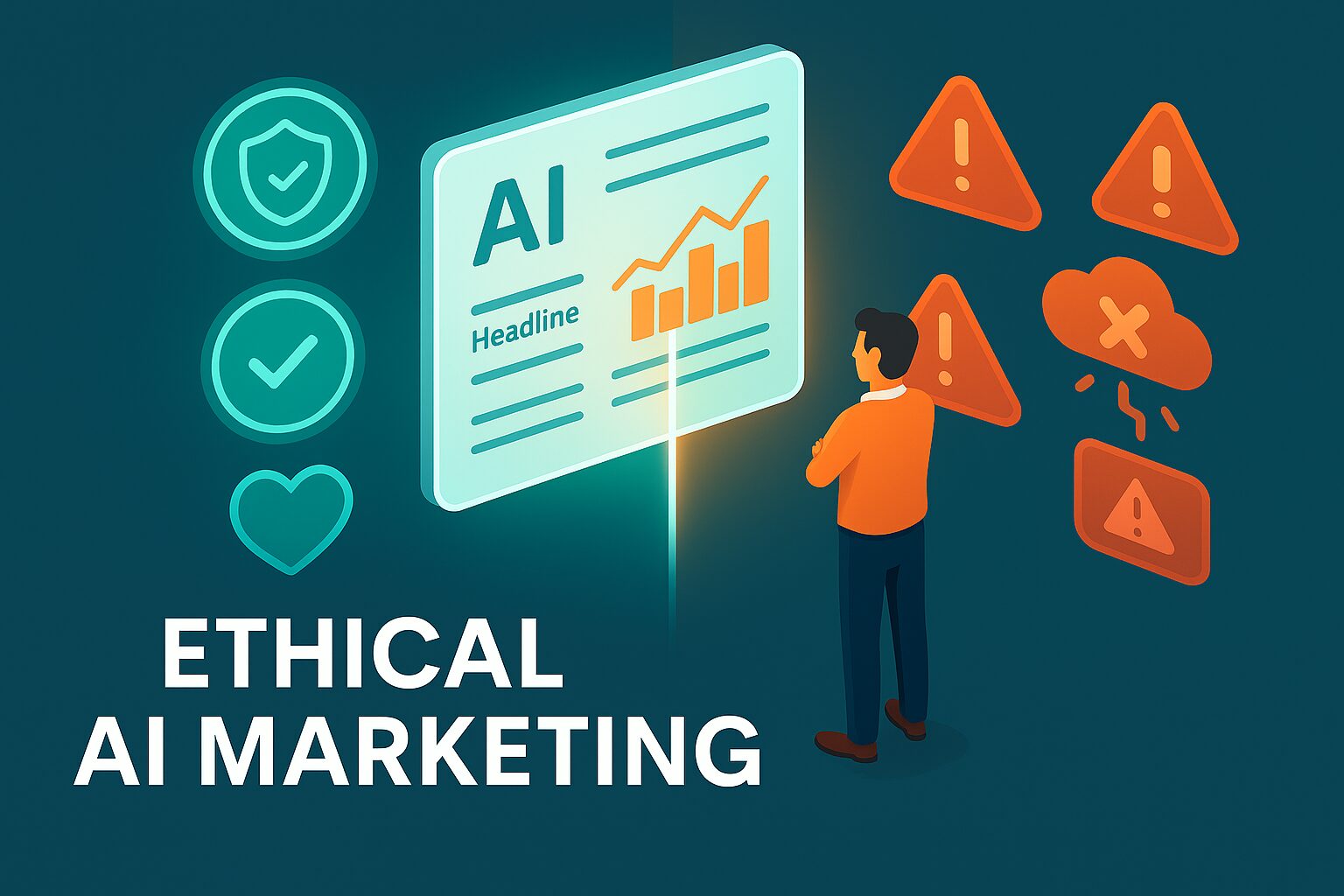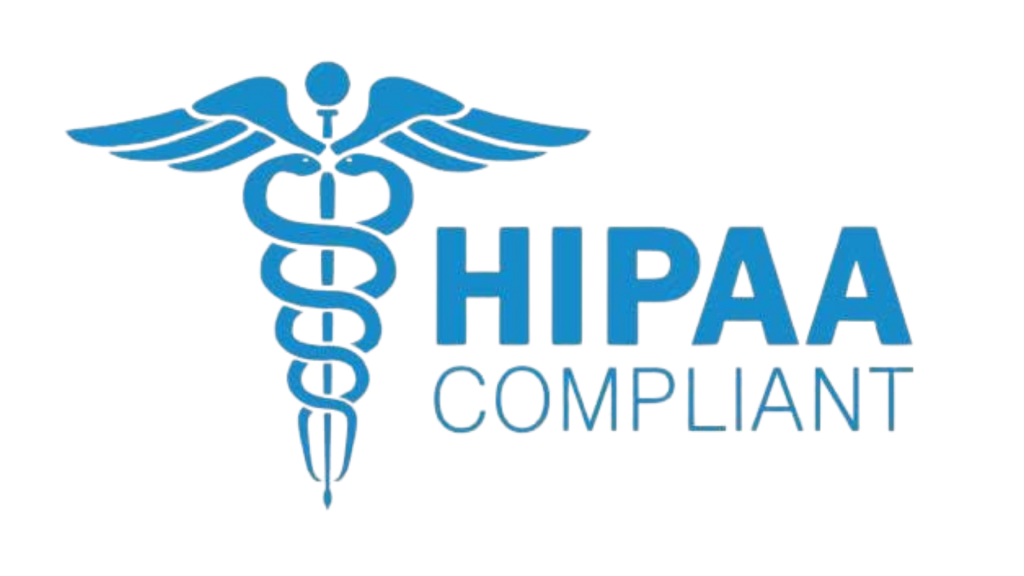For local service businesses such as plumbers, HVAC specialists, and landscapers, content marketing drives discovery and trust. But as artificial intelligence tools like ChatGPT, Jasper, and Gemini flood the market, business owners face a new challenge: balancing efficiency with ethics.
AI can help you write faster, brainstorm ideas, and optimize SEO. Yet when left unchecked, it can also create misinformation, dilute your brand voice, and even trigger penalties from Google’s helpful content updates.
The goal is not to stop using AI, but to use it wisely. By understanding both the ethical boundaries and the risks, you can build credibility while staying compliant with emerging digital marketing standards.
1. Why AI-Generated Content Needs Ethical Guardrails
Brand Trust and Authenticity
Customers can instantly sense when content lacks a human touch. Overreliance on AI tools often results in generic, repetitive copy that feels detached from the brand. For service-based businesses, where reputation drives leads, that disconnect can cost real revenue. A human review process ensures that your posts, blogs, and ads still sound like you — not a machine. Remember, authenticity is what turns casual readers into loyal customers.
Compliance and Legal Risks
AI tools are trained on massive data sets that may include copyrighted or proprietary content. If your business unknowingly publishes plagiarized material or inaccurate advice, you could face complaints, legal exposure, or loss of local credibility. Always review AI-generated content for originality, accuracy, and proper sourcing. Use plagiarism checkers, verify statistics, and make sure no part of the copy could infringe on another brand’s intellectual property.
SEO and Performance
Google’s latest updates prioritize “experience, expertise, authoritativeness, and trustworthiness.” Auto-generated content without human context can fail these tests. AI copy tends to recycle phrasing and structure, which search engines can detect easily. Instead of letting AI write everything, use it to accelerate research and outline creation. Your human input and local expertise are what make the final article valuable and rank-worthy.
Bias and Misrepresentation
AI systems are only as unbiased as the data they learn from. When that data contains stereotypes or regional inaccuracies, your brand could unknowingly perpetuate them. A home-service business might publish content that misrepresents pricing or safety codes without realizing it.
Protect your reputation by reviewing every claim carefully. Include your city, service type, and real customer examples to ground your content in truth.
2. Common Risks Local Businesses Face with AI Content
| Risk | Why It Matters for Local Businesses | Example |
|---|---|---|
| Generic messaging | Makes your brand sound like everyone else | A plumbing blog that repeats the same tips seen on 100 other sites |
| Inaccurate details | Can mislead customers or violate regulations | HVAC blog gives wrong maintenance advice |
| Copyright exposure | Legal trouble and damaged credibility | AI image resembles a competitor’s design |
| SEO penalties | Google flags low-value AI content | Auto repair shop traffic drops after algorithm update |
| Data privacy | Confidential info may be reused by AI tools | Business uploads customer invoices into a public chatbot |
| Tone mismatch | Alienates target audience | A small local brand uses stiff, corporate-sounding copy |
3. A Simple Ethical Framework for AI Use
Building an ethical AI content system does not require complex rules. It starts with consistent habits.
- Keep your brand voice documented.
Define your tone, service values, and writing style so AI tools can align with it. - Require human editing before publishing.
Always review AI drafts for accuracy, tone, and clarity. - Be transparent when relevant.
If you use AI to assist writing, you can mention it. Customers appreciate honesty. - Protect customer and business data.
Never input client names, phone numbers, or private project information into prompt tools. - Prioritize originality and location relevance.
Local examples and photos make your content authentic. - Audit regularly for bias or compliance issues.
Check quarterly for tone drift, duplicate phrasing, or potential inaccuracies.
4. How to Use AI Responsibly: A Four-Step Plan
Step 1 – Start Small
Pick one content type to experiment with, like a blog or FAQ. Compare AI-assisted drafts with your usual copy. Evaluate quality, tone, and customer feedback.
Step 2 – Combine AI with Human Insight
Let AI handle the first draft or structure. Then personalize it with your experience, customer stories, and city-specific examples. AI should make you faster, not invisible.
Step 3 – Scale with Oversight
Create templates and brand guidelines for AI use. Maintain a content review process with sign-offs. Document who reviewed and edited each piece before publishing.
Step 4 – Measure and Adjust
Track performance metrics such as engagement, conversions, and bounce rates. If your new content feels off-brand or causes ranking dips, refine your process.
5. What Local Businesses Should Avoid
- Publishing content straight from an AI tool without editing
- Relying solely on AI for review replies or business descriptions
- Using public AI systems for sensitive customer data
- Overusing repetitive keywords or robotic phrasing
- Allowing AI to decide your tone or promotional claims
Instead, treat AI as a partner that amplifies your expertise. It should support your brand voice, not replace it.
6. Real Use Cases and Practical Tips
Blog and Website Copy
Ask AI for structure and topic ideas, such as “common roofing problems in Boston.” Then add your personal experience and photos from actual jobs.
Social Media Posts
Prompt AI to generate caption ideas, but rewrite them to sound conversational and location-based. Include hashtags tied to your city or neighborhood.
Email Campaigns
Use AI for subject-line ideas or segmentation analysis. Humanize the message by adding seasonal updates, client spotlights, or community news.
Ad Copy
AI can help you test variations quickly. Please always review ad headlines to make sure they comply with service advertising regulations.
7. Key Metrics to Watch
- Traffic quality – A drop in average session duration might mean content lacks depth
- Keyword diversity – Too many repeated phrases signal poor AI writing habits
- Conversion rate – Track calls, form fills, and inquiries tied to AI-supported pages
- Customer sentiment – Monitor feedback and reviews for tone or trust concerns
- Local rankings – Watch for sudden shifts on your Google Business Profile or Maps listings
These metrics reveal whether AI is helping or hurting your brand reputation.
8. Looking Ahead: The Future of Ethical AI Marketing
Governments, tech companies, and regulators are introducing new frameworks for AI transparency. Platforms are also improving their detection systems to filter out low-quality automated content. The next phase of marketing will be hybrid: AI for speed, humans for story. Businesses that combine automation with real expertise will win both trust and visibility.
For local service businesses, the opportunity lies in authenticity. Use AI to simplify research and organization but let your personality, customer stories, and regional expertise lead the way. The most powerful marketing will not come from perfect algorithms but from human truth guided by smart technology.
Conclusion
AI-generated content is here to stay, but its success depends on how responsibly it’s used. For small and local service businesses, the goal is not to publish faster but to publish better.
Protect your brand by pairing AI efficiency with human authenticity. Double-check facts, maintain your tone, and respect your customers’ trust.
Your audience doesn’t just want information — they want connection. The businesses that master ethical AI content will not only stay compliant but stand out as trusted local leaders.






